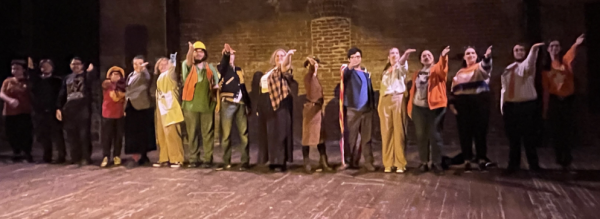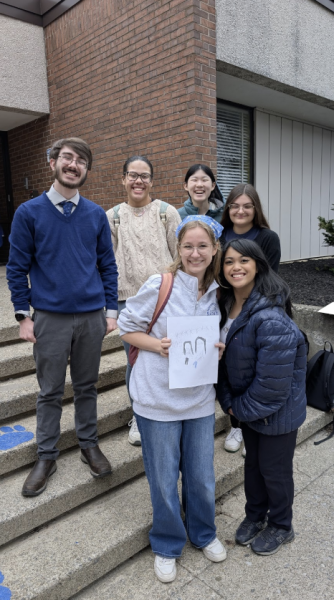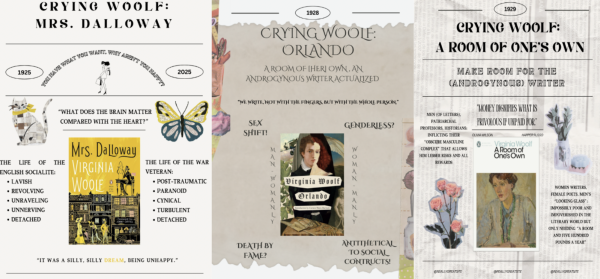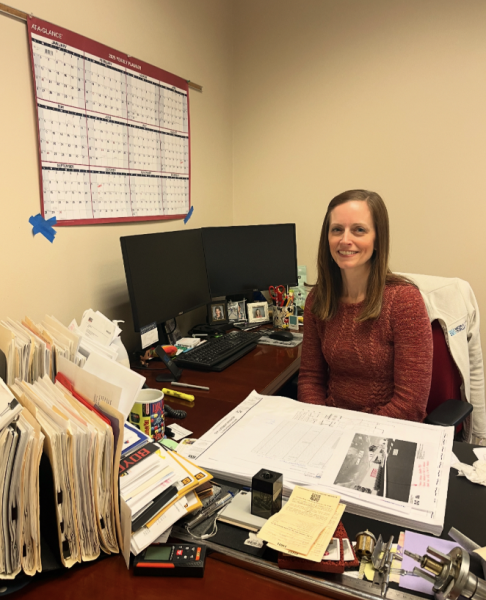The Class that Made a Difference: Post-Colonial Theory and Literature (Dr. Robert LaRue)
Nathaniel Decker graduated from Moravian College in the spring of 2017 with majors in English and education. He currently lives in Philadelphia, where he teaches 11th-grade English, specifically working with special education students at Olney Charter High School.
Post-Colonial Theory and Literature: The Identity Issue” was the full name of the class. It was with Dr. [Robert] LaRue. It was one of the classes that solidified a lot of disparate things that I had been thinking about and focusing on. It kind of pulled a lot of those “threads” together.
In the semester I took it, I was taking a couple of other classes that fit in well with it. At the same time, I was taking a class about 20th Century African American literature which fits in with post-colonial theory in a nice way because postcolonialism looks at things like racism and those bigger implications on a global spectrum, whereas the African American literature [class] really looked at colonialism at home. I was also taking Spanish at the time, and the teacher I had talked about colonialism a lot and used a lot of films that were about colonialism. Having both classes at the same time made that Spanish class even more interesting to me.
Dr. LaRue’s class put me on to a lot of the stuff that I had been on the precipice of because, up until then, I had taken a lot of British literature. A lot of the colonial stuff we read was the effects of colonialism that was perpetrated by people like the British.
I took this class as like, “Oh my gosh; I’ve been so focused on this but there’s this whole other world of literature that I’ve barely even scratched or thought about.”
Dr. LaRue is amazing. The course was a lot of fun to take; the way he taught was interesting, and he was just a great professor. Almost every class, I’d stick around and talk after class. We’d talk about class, but we’d also talk about “Leaves of Grass” and a bunch of other stuff that would be on his bookshelf for whatever reason.
[Dr. LaRue’s teaching style] was really challenging and interesting. When he would lecture, I always felt like I walked away with something new. But what I thought was cool was he didn’t lecture a lot. A lot of times he would let us take the lead and say, “Ok, here’s what we read. What did you think?” He would sort of react to us.
He wasn’t just trying to get us to listen to what he said and give it back to him. He wanted us to draw our own conclusions and come up with our own ideas and our own reactions and he would sort of tease that out.
At the start of the semester, it would be me and one other person talking who were confident enough to say, “Yeah, we’re going to talk about what we read and what we think.” As we went on, more and more students got involved. As a teacher, it’s hard to sit there with quiet students and wait for students to have an opinion. It was inspirational to me both as a student and as someone who became a teacher.
I still think about that class. I’m still reading and rereading some of the handouts he gave us. I’m just really appreciative that he was trying to help his students develop not just for his class but as individuals and as thinkers. He and a lot of the English staff at Moravian most definitely did that. I think about those classes to this day and I think about the things I read.
As told to and edited by Dominic Trabosci







Carol Moeller • Mar 8, 2021 at 6:30 pm
Note: I wrote a comment but it did not appear here. Please instruct on how to login to be able to comment. My usual login info did not seem to work.
adviser • Mar 9, 2021 at 1:37 pm
Hi Dr. Moeller,
We’ve recently updated our comment section to enable comment replies. When comments are submitted, they first come to us for approval. I’ve approved your first comment, so it should show up on the website. Please let me know if it’s still not appearing.
Carol Moeller • Mar 8, 2021 at 6:20 pm
Thanks, Nathaniel, for talking about the difference Dr. LaRue and his class made in your education in life – in ways that are still ongoing! These points are critical, on how learning about colonialism and post-colonialism puts so much else into perspective.